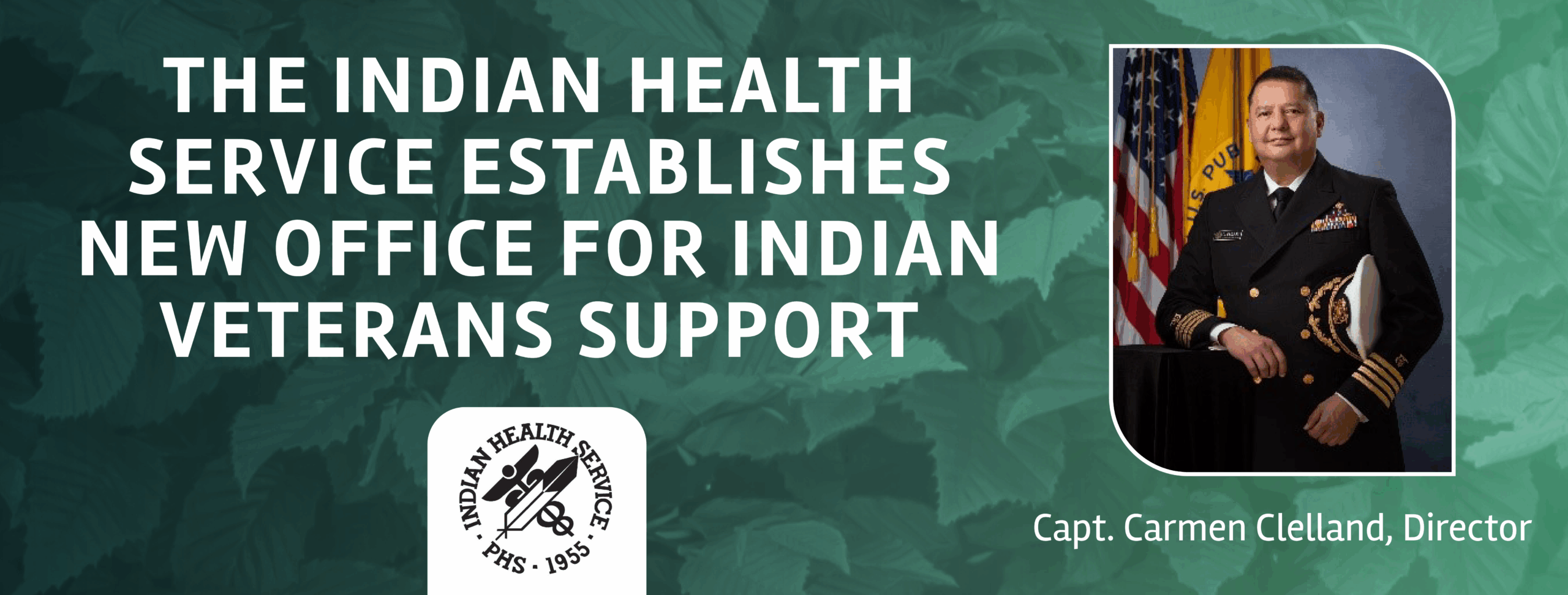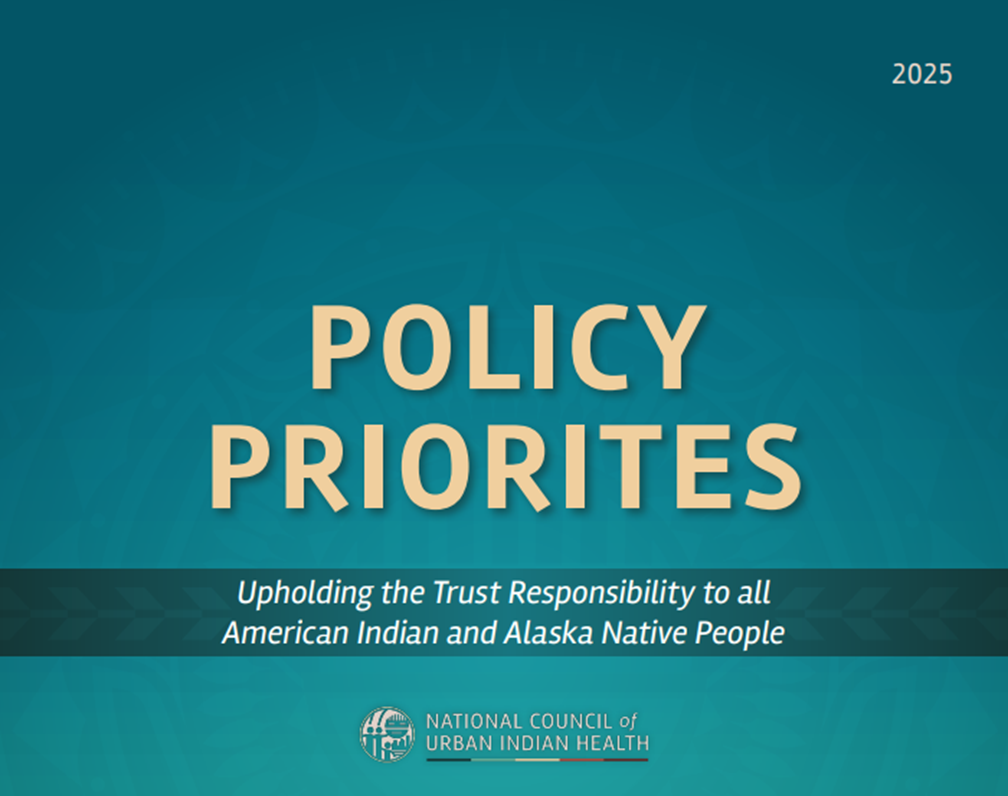The Department of Veterans Affairs (VA) released its consolidated responses to VA’s Advisory Committee of Tribal and Indian Affairs’ (ACTIA) November 2022 recommendations to VA Secretary Dennis McDonough regarding improvements to VA’s programs and services to better serve Native American veterans. These recommendations were finalized during the November 8-11, 2022, ACTIA Meeting and included several recommendations to improve the delivery of health services to Native veterans living in urban areas. These included suggestions regarding interagency collaboration under the Veteran Health Administration-Indian Health Service (VHA-IHS) memorandum of understanding (MOU), development of a VA Urban Confer policy, use of traditional healing practice for American Indian and Alaska Native (AI/AN) veterans, data on urban veteran behavioral health, and urban veteran homelessness. VA’s responding is a crucial step toward achieving the goal of supporting AI/AN veterans as whole people and meeting their needs.
Background on the ACTIA
The Committee was established in accordance with section 7002 of Public Law 116- 315 (H.R.7105 – Johnny Isakson and David P. Roe, M.D. Veterans Health Care and Benefits Improvement Act of 2020). Pursuant to Public Law 116-315, the Committee provides advice and guidance to the Secretary of Veterans Affairs on all matters relating to Indian Tribes, tribal organizations, Native Hawaiian organizations, and Native American Veterans. The Committee serves in an advisory capacity and, at least once a year, the Committee must submit recommendations to the Secretary of Veterans Affairs and relevant Congressional committees concerning legislative or administrative action to improve programs and services of the Department to better serve Native American Veterans.
Alongside partners from throughout Indian Country, the National Council of Urban Indian Health (NCUIH) played a critical role in getting this legislation passed in 2020. In a December 4, 2020 letter NCUIH signed with other National Native organizations regarding the ACTIA, NCUIH emphasized the importance of establishing the ACTIA to improve programs and services for Native veterans.
NCUIH subsequently nominated NCUIH’s Board President, Ms. Sonya Tetnowski, to the ACTIA, where she serves as the Chair of the Health Subcommittee. Ms. Tetnowski is the CEO of the Indian Health Care Center of Santa Clara Valley and is an Army veteran.
Recommendations and Responses
The ACTIA submitted eleven recommendations to VA to improve the care of AI/AN veterans. NCUIH is highlighting VA’s response to five of those recommendations below. To read the full response, click here.
Recommendation 1C: Interagency Collaboration Under VHA-IHS MOU
VA Office of Tribal Government Relations (OTGR), Veterans Health Administration (VHA) Office of Tribal Health (OTH) and the Office of Rural Health concur in principle with the ACTIA recommendation to require annual partnership between Veterans Integrated Services Network Directors and at least one Indian Health Service (IHS), Tribal, Urban or Native Hawaiian Health program to meet a specific goal or objective as described in the current Veterans Health Administration (VHA) – IHS Memorandum of Understanding (VHA-IHS MOU). ACTIA recommended that this be implemented in FY 2023. OTGR, VHA OTH, and the Office of Rural Health recommend that Network Directors submit an annual report to the Executive Committee of the VHA/IHS MOU Interagency Workgroup documenting compliance with this recommendation. The VHA-IHS MOU Interagency Workgroup will then provide an annual summary report of these efforts to VA’s ACTIA.
Recommendation 1D: Urban Confer Policy
The ACTIA recommended that VA develop an Urban Confer Policy in order to partner with UIOs more effectively in their provisions of health services of Native Veterans in urban areas. The ACTIA stated that this recommendation should be implemented by December 2023.
VA will research the processes and authorities used by other federal agencies to create the urban confer policy that ACTIA recommended.
Recommendation 3A: Behavioral Health/Suicide Prevention
The ACTIA recommended that VA provide information on its efforts to collect data on:
(1) Veteran suicides that occur on tribal lands which can be included in the VA/IHS MOU operational plan; and
(2) AI/AN Veteran suicides that occur in urban areas.
The ACTIA stated that data concerning urban city in which Native Veteran suicides occur needs greater specificity to address issues such as how VA defines rural and urban. The ACTIA recommended VA begin collecting data by October 2023, publish its first report by October 2024, then annually publish the results at the beginning of each fiscal year thereafter in October of each calendar year.
VA stated that it supports the goals of this recommendation and requested the opportunity to discuss and coordinate regarding avenues for enhancing available data sources to broaden accurate and reliable reporting on suicides among AI/AN Veterans. VA stated that it is not aware of resources needed to identify whether Veteran suicide deaths occur on tribal lands and that Veteran suicide deaths are identified from joint VA/Department of Defense searches of the Centers for Disease Control and Prevention’s National Death Index (NDI). VA OTGR and VHA OTH will provide a plan of action by the end of the second quarter of FY 2024.
Recommendation 3B: Cultural Healers/Natural Helpers
As part of the ACTIA recommendations regarding cultural healers/natural helpers, the ACTIA recommended VA, incorporating input gathered in tribal consultation and urban confer, amend VA policy and relevant VHA Directives to champion and/or allow the use of traditional healing as a legitimate and evidence-based practice that promotes the wellbeing of American Indian, Alaska Native and Native Hawaiian Veterans. It stated that VA should complete this recommendation by October 2024.
VA responded by stating that VHA looks forward to supporting evidence-based traditional healing in alignment with VHA’s Whole Health System of Care. VA also stated that VHA suggested changes to language in this recommendation.
Recommendation 3C: Homelessness as a Health Disparity
The ACTIA recommended that VHA Homeless Programs Office (HPO) amend its Strategic Plan to target a 5% increase in Stand Downs located on tribal lands, rural communities, Native Hawaiian communities and in urban areas with a high population of AI/ANs.
It also recommended that VA should:
- Create objectives in the operations plans of each region to ensure the target increase percentage in Stand Downs can be met.
- Provide quarterly updates with information on progress made or a justification for why the goal was not reached.
- Gather information on the number of American Indians, Alaska Natives and Native Hawaiians that attend each event, including their tribal affiliation.
- Complete this recommendation by October 2025.
VA staff will ensure that messaging is provided to the Bureau of Indian Affairs when an event is planned, apply for VA specific purpose funding for local Stand Down events and work collaboratively with local providers to gather information on the number of American Indians, Alaska Natives and Native Hawaiians that attend each event, including their tribal affiliation.
VA stated that it is committed to increasing the number of Stand Downs in targeted areas with high populations of AI/AN. Starting in FY 2023, VA will begin sharing stand down data with the ACTIA.
VHA HUD-VA Supportive Housing agrees with the replacement of BIA with “IHS, Urban Indian Organizations and Tribal Health Programs.”
VHA Homeless Program Office (HPO) will:
- encourage UIOs, IHS, and where appropriate, tribes to participate in existing stand down development and implementation.
- collaborate with and support UIOs, IHS and tribes interested in developing Stand Downs.
- provide an educational and outreach tool (VHA stand down presentation) it has developed to assist UIOs and IHS in developing tribal specific stand downs.
VHA HPO would recommend that Tribes who are interested in tribal specific Stand Downs request the assistance of VA OTGR.
For information on Stand Down events, please click here.
Next Steps
The National Council of Urban Indian Health (NCUIH) welcomes the VA’s response to the ACTIA’s recommendations. The ACTIA recommendations provide tangible programmatic changes that VA can make to better serve Native veterans. NCUIH looks forward to continuing to work with the ACTIA and VA to advance these changes and ensure that Native veterans have access to the benefits and services that the earned through their military services.


